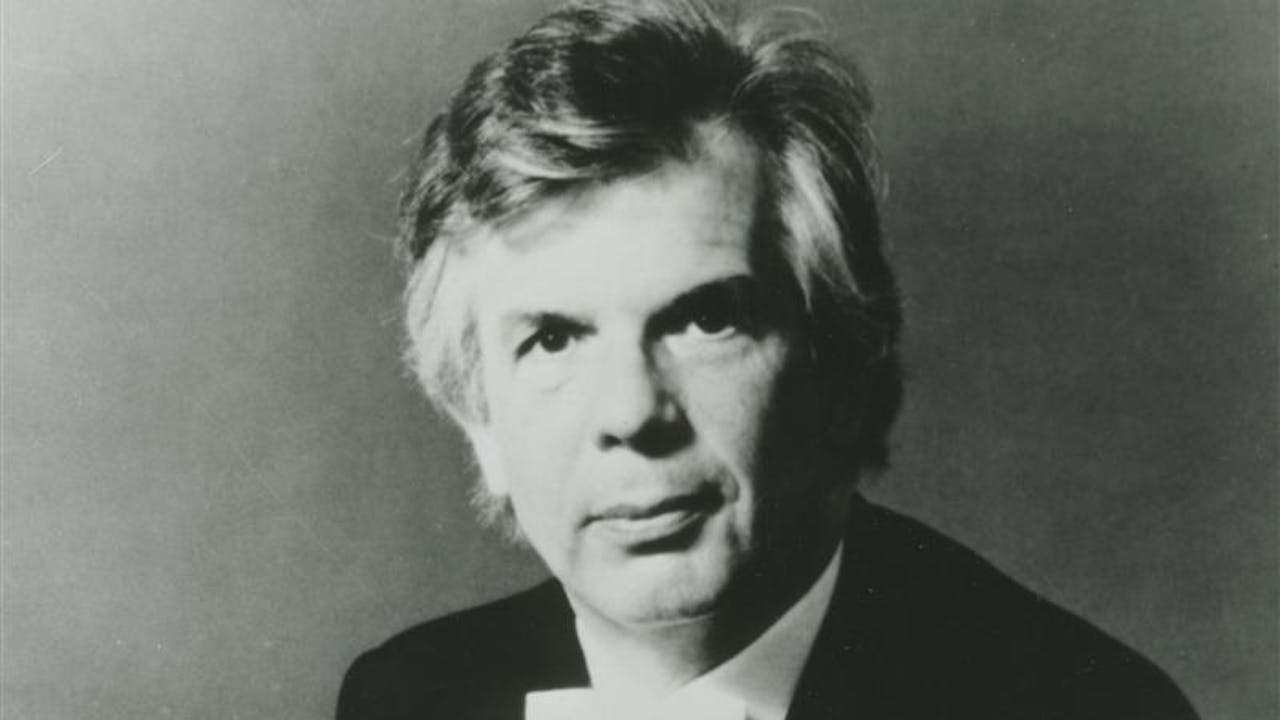The German conductor performed at the Royal Opera House from the 1970s to the early 2000s.
By Peter Mario Katona, Director of Casting, The Royal Opera
Wednesday 10 September 2025
The Royal Opera is saddened to hear of the death of German conductor Christoph von Dohnányi, who passed away on 6 September 2025 aged 95.
Director of Casting, Peter Mario Katona reflects on his experience with this extraordinary artist:
‘Christoph von Dohnányi, who died on September 6, two days before his 96th birthday, was a towering figure in more than one way. He had the most brilliant mind and, as a conductor, he was a master of the core concert repertory and opera theatre in equal terms, almost unique in his generation.
He disliked false glamour and superficiality and his critical intellect and strict discipline masked for many the irreverent humour and genuine warmth of the man. He had maybe the sharpest ears in the business (incredible what minute detail he could identify in a complex orchestral sound). He mistrusted what he didn’t see in the score and hated sentimental and self-indulgent interpretations. Yet, he became one of the most distinguished and exciting conductors of Richard Strauss, whilst or maybe because he found conducting Strauss often a rather "guilty pleasure", given the extrovert flamboyance of much of the music.
Utter perfection and a kind of cold fire distinguished his readings. His core work was rooted in the big classical repertory from Mozart to Berg, but at the same time he was a tireless champion of new music from Henze (whose most important operas he premiered) to Birtwistle.
He was a man of opera as theatre. As Music Director in Frankfurt and Hamburg in the 1970s he led the innovation of the way opera was produced. His groundbreaking influence remains visible to this day, though some of his successors got more credit or may have overdone things. He persuaded many important directors of straight theatre and film to work in opera for the first time, and directed some outstanding productions himself (Figaro in Frankfurt, Fidelio in Hamburg), with eminent trailblazing designers, such as Achim Freyer and Rolf Glittenberg. The range of his Covent Garden repertory over the years, from 1974 to 2004, stretched from Figaro over Die Meistersinger von Nürnberg to Wozzeck, and most notably legendary readings of all the major operas by Richard Strauss.
On a personal note, I met him first in 1967 when he prepared the world premiere of Henze‘s Der junge Lord in Berlin. I became his Personal Assistant the following year, when he started as Opera Director in Frankfurt, and continued working with him when he was Intendant in Hamburg. In 1983, when he decided to leave Hamburg and become Music Director of the Cleveland Orchestra, I followed the invitation to become Casting Director at The Royal Opera. 'The preceding 15 years with him formed my own ear and eye and continue to today. Gratitude is a weak word to describe his support over decades and his formative guidance.’
Read more below for a full overview of Dohnányi’s life and work.
Dohnányi was born in Berlin. He studied composition, piano and conducting at the Munich Hochschule für Musik und Theater, and received the Richard Strauss Prize from the city of Music. His early positions included General Musical Director of Lübeck Opera (1957–63) and Chief Conductor and Music Director of the WDR Symphony Orchestra Cologne. He went on to become Director of Frankfurt Opera (1968–77), Chief Conductor with Hamburg State Opera (1977–84) and Music Director of the Cleveland Orchestra (1984–2002). He was named Music Director Laureate of the Cleveland Orchestra in 2002. His other positions have included Principal Conductor of the Philharmonia Orchestra (1997–2008) and Chief Conductor of the NDR Symphony Orchestra (2004–10). He was appointed Honorary Conductor for Life with the Philharmonia in 2008 and presented with an honorary doctorate from the Royal Academy of Music in 2013. In addition to his orchestral conducting Dohnányi appeared at the world’s leading opera houses, including close associations with Vienna State Opera and Zurich Opera.
Dohnányi made his Royal Opera debut conducting Salome in 1974, with Gwyneth Jones in the title role. He returned for Le nozze di Figaro (1976), Wozzeck (1984), Die Frau ohne Schatten (1987, 2001), Salome (1988, 1997), Die Meistersinger von Nürnberg and Fidelio (1990), Der fliegende Holländer (1992) and Arabella (2004). His performances were rapturously received. Of his 1997 Salome, The Independent wrote that ‘the curdled, rancid beauty of the orchestration was magnificently realized’, while in 2001 The Guardian described how he unleashed ‘the great climaxes’ of Die Frau ohne Schatten with ‘irresistible intensity’ in a performance that was ‘a model of balance’. His 2004 interpretation of Arabella was equally acclaimed, with The Stage writing that he assured ‘the highest musical standards’ in ‘one of Covent Garden’s great evenings’.
In more recent seasons Dohnányi maintained a busy performance schedule including concerts with the Philharmonia, Leipzig Gewandhaus, Sydney Symphony, Vienna Symphony, New York Philharmonic and WDR Symphony orchestras and the Orchestre de Paris, and Elektra for La Scala, Milan.
